PNP furthers Human Rights
National Police consultations
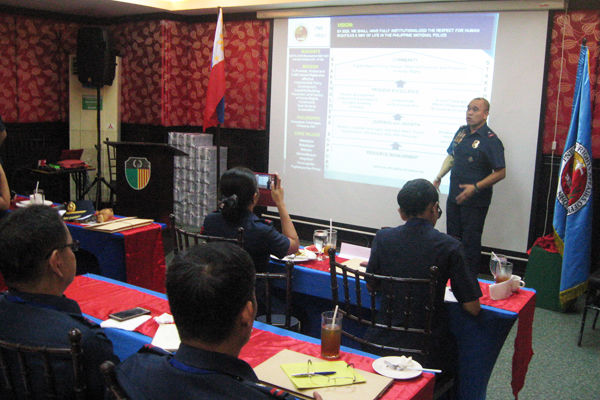
“We need to ensure continuity and sustainability of our efforts to promote rights-based policing within the Philippine National Police (PNP),” stated PNP Human Rights Affairs Office Director (HRAO) Chief Superintendent Dennis Siervo, as he addressed the eighteen Regional Police Human Rights Officers (RPHROs) attending an assessment and evaluation meeting conducted by the PNP-HRAO in Quezon City with the support of the Hanns Seidel Foundation. “We want you to let us know how we can be more effective, given the challenges we face,” added Chief Superintendent Siervo, whose office under the direct supervision of the PNP Chief exercises operational oversight over the activities of the 18 regional police human rights officers (PHROs).
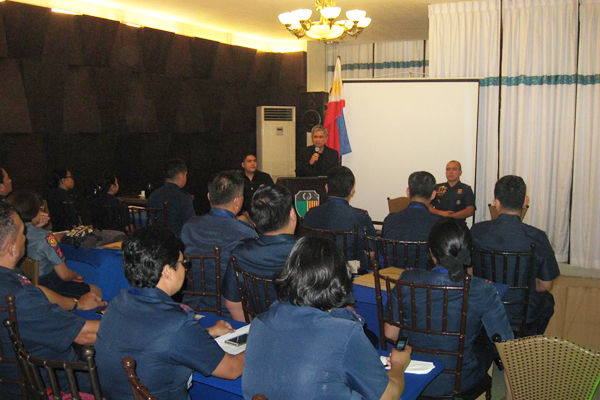
Under the PNP-Hanns Seidel Foundation Partnership for 2016, the PNP-HRAO arranged for all 18 RPHROs come to Manila to discuss operational and other issues affecting their performance. At the meeting, the PNP-HRAO provided updates on existing and proposed policies that relate to PHROs’ performance. In addition, representatives from the PNP’s Directorates for Investigation and Detective Management, Planning, Operations, Personnel and Records Management, Comptroller’s Office, Human Resource and Doctrine Development, and Support Services, among others were present to help resolve issues and concerns affecting PHRO performance.
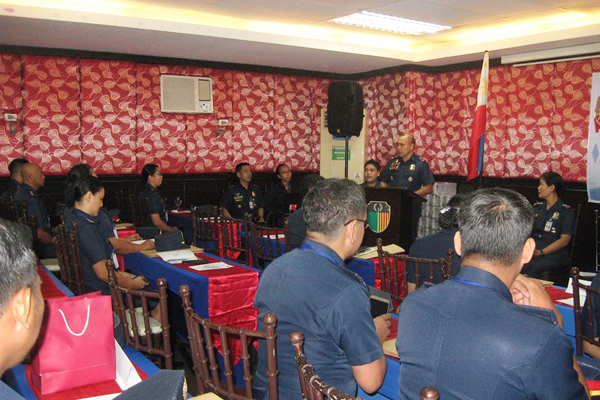
The PNP-HRAO described its plan to design and institutionalize within the PNP a mandatory training course for PNP Hman Rights Officers (HROs) which responds to concerns raised by the RHROs that there be a standardized program of instruction (POI) for training on rights-based policing at different levels, i.e. basic (police non-commissioned officers), senior (police commissioned officers), and advanced (commissioned officers assigned to command positions). To address career-related concerns of police officers in human rights officer positions, the PNP-HRAO will push for assignment of HROs from the national headquarters so that regional, provincial, and city police directors may not reassign HROs after the latter has only served for a period less than two years and unable to make significant accomplishments.
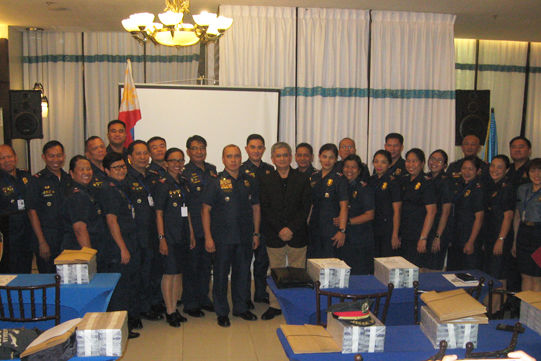
The position of HROs within their respective territorial units will also be defined, and for regional postings, the addition of a deputy HRO position will be proposed for continuity and sustainability. Other policies to be formulated include provision of separate offices for human rights concerns at all levels and to eventually eliminate the practice of having HROs hold concurrent positions. Towards the end of the activity, the PNP-HRAO gave each participant several copies of the “Miranda Warning and Anti-Torture” booklets which were printed with HSF Support. These materials have the required text printed in ten major Philippine languages for dissemination to various police stations throughout the country.
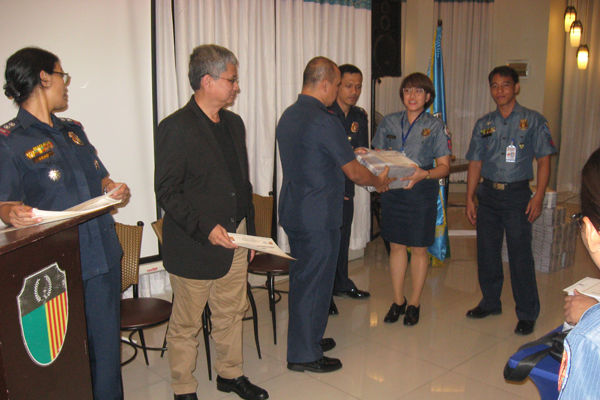
As part of the PNP’s adherence to human rights principles, its operational procedures require that the officer must inform the person arrested, detained or under custodial investigation of his rights under the “Miranda Doctrine.” Moreover, the Philippines’ Anti-Torture Laws require policemen making an arrest to advise persons under arrest that the latter has the right to demand physical examination by an independent and competent doctor of his choice, and should he cannot afford the services of a doctor, the state shall provide one for him.
HSF’s partnership with the PNP supports human rights-based policing training for PNP human rights officers and trainers, and the holding of fora for representatives of the PNP and CSOs to introduce the PNP's "Rights-Based Policing Program," which promotes the police officers' competence, professionalism and networking with the community.
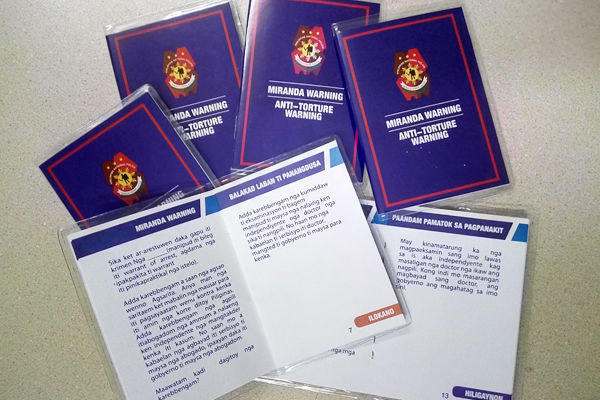
HSF has been working successfully with the PNP since 2008 for the implementation of the PNP human rights development program and provided technical and funding assistance in the conduct of human rights training, deepening seminars and the publication/production of training and information materials, among others.
